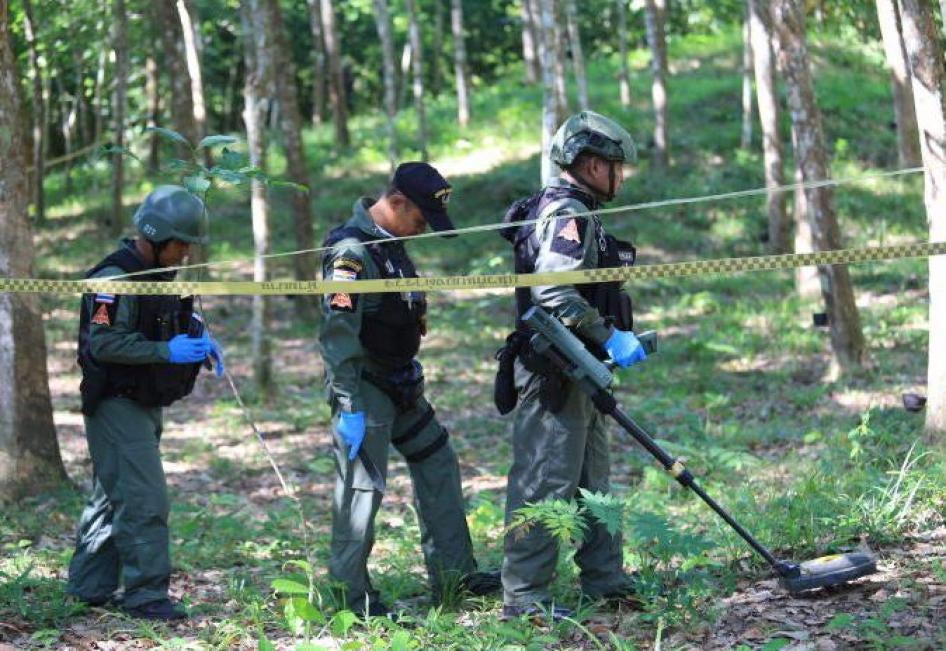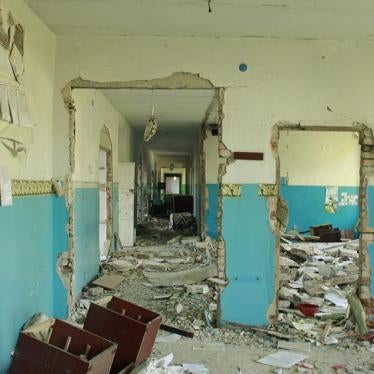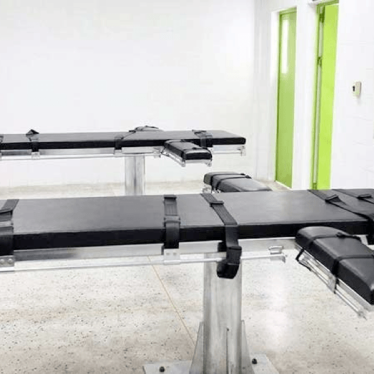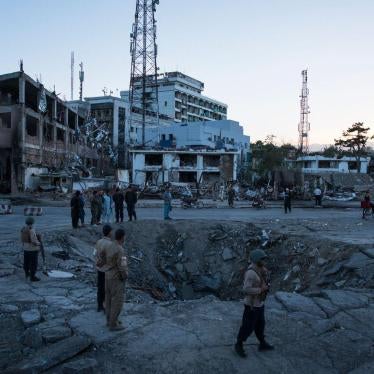(New York) – Separatist insurgents have used landmines to maim rubber plantation workers and seriously disrupt the daily life of people in Thailand’s southern border provinces, Human Rights Watch said today. Ethnic Malay Muslim insurgents affiliated with the Barisan Revolusi Nasional (BRN) separatist movement should immediately cease using antipersonnel landmines and end attacks on civilians.
On July 2, 2018, Suthin Haewkhuntod, an ethnic Thai Buddhist latex tapper in Yala province’s Krong Penang district, lost his foot after he stepped on a landmine reportedly laid by insurgents on the rubber plantation where he worked. Two other ethnic Thai Buddhist latex tappers, Wipawan Plodkaenthong and Chutipon Namwong, were seriously wounded by landmines, in Yala’s Yaha district on June 28 and in Muang district on July 2.
“Laying landmines on rubber plantations and in paths used by villagers is cruel beyond words,” said Brad Adams, Asia director. “Insurgent groups should stop using these unlawful weapons and clear the landmines they have already laid.”
The separatist groups should observe the 1997 Mine Ban Treaty, which Thailand ratified in 1998. Antipersonnel mines are prohibited because they cannot discriminate between civilians and combatants, and because they kill and maim people long after they are laid.
The insurgents have claimed that ethnic Thai Buddhists should not live in the southern border provinces. They have frequently used both victim-activated and command-detonated landmines over the past decade, according to Landmine Monitor. Victim-activated mines are specifically prohibited by the Mine Ban Treaty. Since the first reported case in 2010, Human Rights Watch found that the BRN insurgents frequently used explosives activated by pressure plates or tripwires to kill and injure people working in rubber and fruit plantations.
International humanitarian law, also known as the laws of war, prohibits attacks on civilians or attacks that fail to discriminate between combatants and civilians. Since the escalation of insurgent attacks beginning January 2004, Human Rights Watch has documented numerous violations of the laws of war. Most victims have been civilians from the populations of ethnic Thai Buddhists and ethnic Malay Muslims in the provinces of Pattani, Yala, Narathiwat, and Songkhla. There is no basis to insurgent claims that attacks on Thai Buddhist civilians are lawful because they are part of the Thai Buddhist state or that Islamic law, as they interpret it, permits such attacks.
The most visible impact of insurgent attacks is the flight of ethnic Thai Buddhists from the communities where they have lived alongside ethnic Malay Muslims for generations. Their plantations have been abandoned. Landmine victim Suthin Haewkhuntod is the last ethnic Thai Buddhist latex tapper in his village.
Although the insurgents have suffered major setbacks from government security sweeps, they maintain a presence in hundreds of ethnic Malay Muslims village. The BRN insurgents point to abusive, heavy-handed tactics by government security forces as a justification for their acts of violence, and as a recruiting tactic to get new members.
In the southern border provinces, Thai government security forces and associated militias have carried out reprisal attacks and other abuses in violation of the laws of war. Government forces benefit from an entrenched culture of impunity for human rights violations in the southern border provinces. The government has yet to successfully prosecute any police or military personnel for human rights abuses against suspected ethnic Malay Muslim insurgents.
“The Thai government should respond to the insurgents’ use of landmines and other brutal attacks on civilians by upholding the rule of law, ending security force abuses, and addressing long-held grievances in the ethnic Malay Muslim community,” Adams said. “If the government continues to shield its troops from criminal liability, it will only add fuel to the flames of insurgent violence.”
Human Rights Watch is a co-founder of and chairs the International Campaign to Ban Landmines (ICBL), which received the 1997 Nobel Peace Prize for its efforts to bring about the Mine Ban Treaty. Human Rights Watch also edits the ICBL’s annual Landmine Monitor report.







